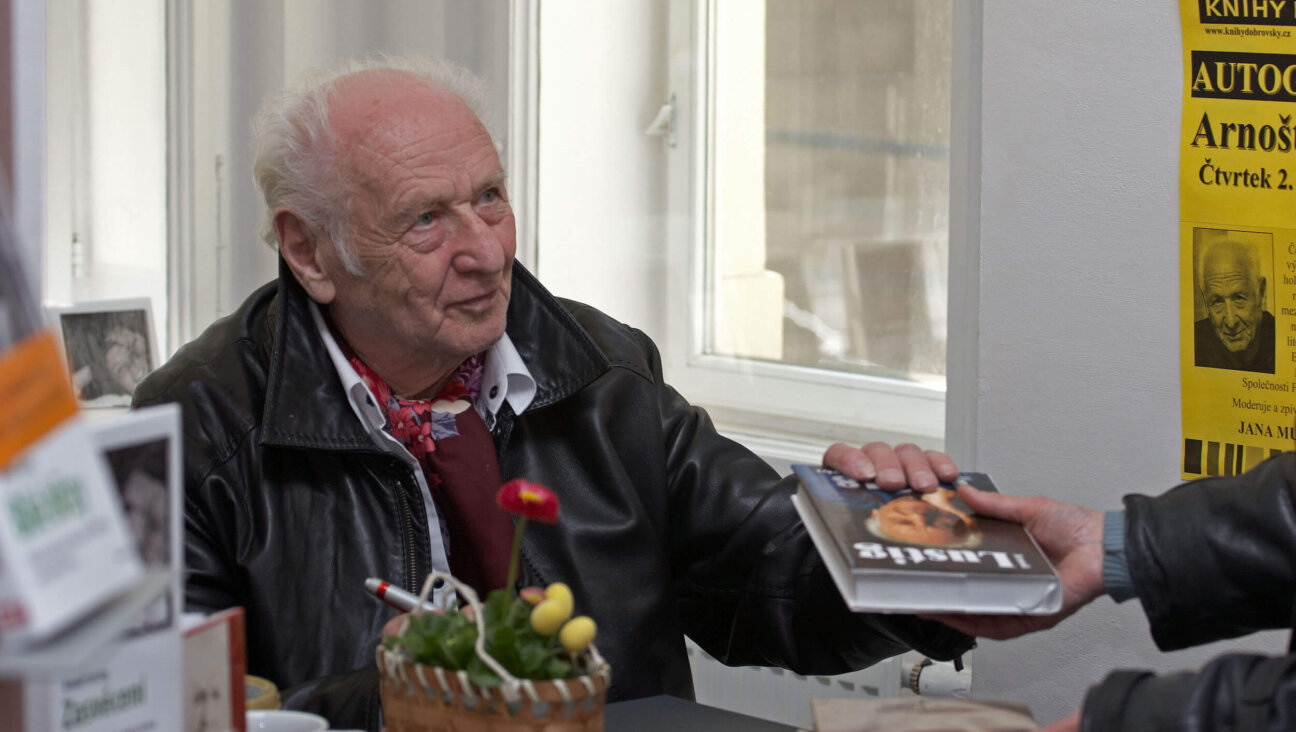Teaming Up for Equality in Israel
Immediately following United Jewish Communities’ General Assembly in Jerusalem, I took an American colleague to visit a Jewish school in Ramle, in the center of Israel. We went to visit Iman, one of the very few Arab citizens of Israel teaching in a Jewish school.
Iman joined the school last year as part of a systematic initiative being undertaken jointly by Israel’s Ministry of Education and my organization, Merchavim: The Institute for the Advancement of Shared Citizenship in Israel. By placing Arab teachers in Jewish schools, we aim to address a growing shortage of Jewish teachers, raise teaching standards and provide employment for some of Israel’s 10,000 unemployed Arab teachers. We also intend to raise familiarity and comfort levels between Jewish and Arab citizens of Israel and help them develop a greater sense of awareness and pride in their shared Israeli citizenship.
The school’s principal took us to see Iman teaching a fourth-grade Arabic class. We could tell that her placement was a great success. The special connection and mutual affection between this 25-year-old traditionally dressed Muslim Israeli and her Jewish students was obvious.
It was only when we left the school that I saw how deeply moved my American colleague had been by the experience. “The visit reminded me of my first black teacher in my very white Southern school almost 40 years ago,” she told me.
It is not surprising that the growing number of American Jews who care about the future of Jewish-Arab relations in Israel often view this issue through the prism of race relations in America. The historical contexts may be entirely different, but there are clear parallels. Like African Americans, Israel’s Arab citizens — one out of every five Israelis — are much more likely to be under-educated, poor, unemployed or in jail. As with race relations in America, the story of Jewish-Arab relations in Israel is often told using starkly conflicting narratives. Above all, as people of good will strive for more harmonious times in both Israel and America, we are aware of the potential destructiveness of inter-group turmoil for our respective societies.
Perhaps for this very reason, the session at the General Assembly on “The Future of Jewish-Arab Relations in Israel” was filled to capacity. As someone who has watched North American Jewry increasingly engage with this issue over the past decade, it was exhilarating to serve as a panelist and speak to an audience that packed a very large room.
In recent years, the issue of Israel’s Arab citizens and their place within Israeli society has gone from being a boutique cause for a relatively small number of Diaspora Jews to one that features prominently on the North American Jewish establishment’s agenda. It is increasingly and accurately seen as a key strategic concern for Israel’s future. Reflecting this shift, the General Assembly session was convened by the Inter-Agency Task Force on Israeli Arab Issues, a new, dynamic and rapidly growing body that is part of the American Jewish Joint Distribution Committee and works closely with other establishment pillars such as UJC and many of North America’s largest Jewish community federations.
As an Israeli Jew and a Zionist who views improving relations between Jewish and Arab citizens as not only a pragmatic imperative but also a moral, Jewish, Zionist and democratic one, I see the growing involvement of American Jewry as a source of considerable encouragement. As well as providing much needed resources, it represents a reaffirmation of a vision of Israel as a national homeland for the Jewish people, committed to providing a fair, inclusive and welcoming home to all of its citizens. Indeed, there is a certain irony — less appreciated but grudgingly acknowledged, I think, by many Arab friends and colleagues — that it is precisely because Israel is a national homeland for the Jewish people that powerful elements of world Jewry are committed to shaping a fairer Israel.
American Jews can play a key role in encouraging greater engagement by Israel’s leaders and the Israeli public on this crucial challenge. American Jews are able to draw upon a wealth of practical experience, informed by their long struggle as a minority fighting discrimination and working to optimize opportunities for all Americans. When American Jewish leaders who care passionately for Israel’s future learn that only around 5% of Israel’s government employees are Arabs (a quarter of their representation in the population) or that Arab children have around half the chance of graduating from high schools and twice the chance of being poor as Jewish Israelis, they understandably reach for the civil rights handbook.
Israel’s Jewish and Arab citizens are plagued by mutual fears fueled and sustained by their largely separate lives and the regional conflict. We urgently need help from good friends.
American Jews have a unique opportunity to help Israel and also to help their communities. Significant progress on Jewish-Arab relations will strengthen Israel’s international legitimacy as a national homeland for the Jewish people. It will also help make Israel a place that many more young American Jews can be proud of — and an important element in strengthening their Jewish identities.
In working together to advance equality, we reaffirm the common foundation of American-Israeli partnership — shared democratic values. By joining their Israeli brothers and sisters in this effort, American Jews demonstrate that they are equally proud of their deep allegiances to two determined democracies, both working hard to realize the ideals of their respective founding fathers.
Mike Prashker is founder and director of Merchavim: The Institute for the Advancement of Shared Citizenship in Israel.











